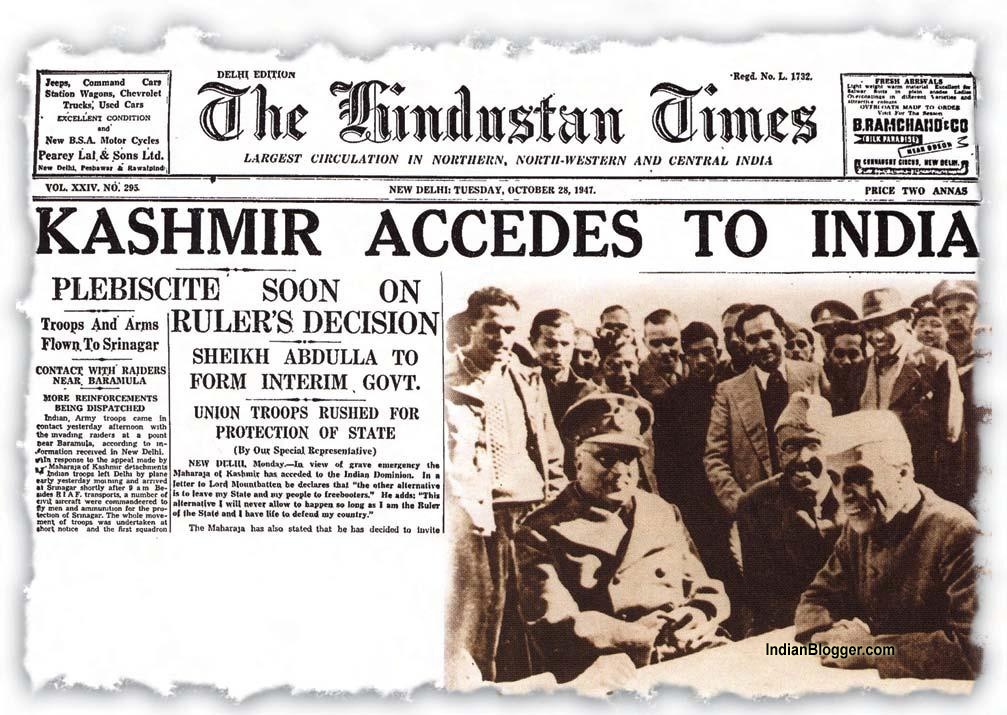On Kashmir
India has twice the number of millitary personnel as compared to pakistan. It has a defence budget of $ 39 bn whereas pakistan has a $ 5.4 bn budget. India has the 4th largest airforce in the world. With 1500 aircrafts, it is definitely one of the world's bests.
My point is that pakistan can not beat india in a conventional war. Similarly, it cannot millitarily push india out of the kashmir it has occupied. India is happy with status quo as far as kashmir is concerned. It intends to sit on the issue (well, it simply says that there IS no issue) till eternity.
Moreover, India's clout in international relations has constantly been growing. Infact india today has the support of some nations in its claim to a permanent Seat in the UNSC. Obviously being the worlds largest democracy and a BRIC nation witha middle.class larger than the population of united states has obviously helped. On the other hand, pakistan's image internationally has really suffered because of the "perception" that it is a breeding ground for religious extremism and that its policy on war against terrorism is schizophrenic.
Lastly, post september 11 world has zero tolerance for any kind of freedom struggle or guerilla warfare. Pakistan had historically supported groups such as lasjkar e jhangvi who's mujahideen wrecked havoc in the indian camps. But continuayion of that policy would have devastating consequences for pakistan's internatoonal relations.
So, again, neither can pakistan millitarily push india out of kashmir, nor can it Lobby internationally to put pressure on India and nor can its hitherto strategy of supporting the mujahideen in kashmir be overlooked by the west. And India seems content with status quo on kashmir. Thus, there seems to be no way that pakisyan would get occupied kashmir back. On the contrary, the kashmir issue is the biggest bone of contention between the two countries. Other issues such as sir creek, siachin etc have come quite close to resolution in the past but kashmir tends to come in the way.
Whats the strategic significance of kashmir if the landmass remains occupied by India? None. For kashmir to be significant, it has to be under our occupation and i dont see that happening. Agreeing to status quo on kashmir will enable us to cut down ourmillitary budget and increase expenditure on educaton and health. Currently we spend 2.5% (1.5% on education)of our gdp on there sectors whereas the minimum global guidelines require 5% expenditure.
Most importantly it will enable us to focus our attention on wafs that need to be fought wighin the country as well as the great game that is being played in our region with pakistan being the fulcrum.
In any case, I am convinced that the common pakistani does not perceive india to be enemy #1. Instead this coveted title now belongs to the United States of America.
My point is that pakistan can not beat india in a conventional war. Similarly, it cannot millitarily push india out of the kashmir it has occupied. India is happy with status quo as far as kashmir is concerned. It intends to sit on the issue (well, it simply says that there IS no issue) till eternity.
Moreover, India's clout in international relations has constantly been growing. Infact india today has the support of some nations in its claim to a permanent Seat in the UNSC. Obviously being the worlds largest democracy and a BRIC nation witha middle.class larger than the population of united states has obviously helped. On the other hand, pakistan's image internationally has really suffered because of the "perception" that it is a breeding ground for religious extremism and that its policy on war against terrorism is schizophrenic.
Lastly, post september 11 world has zero tolerance for any kind of freedom struggle or guerilla warfare. Pakistan had historically supported groups such as lasjkar e jhangvi who's mujahideen wrecked havoc in the indian camps. But continuayion of that policy would have devastating consequences for pakistan's internatoonal relations.
So, again, neither can pakistan millitarily push india out of kashmir, nor can it Lobby internationally to put pressure on India and nor can its hitherto strategy of supporting the mujahideen in kashmir be overlooked by the west. And India seems content with status quo on kashmir. Thus, there seems to be no way that pakisyan would get occupied kashmir back. On the contrary, the kashmir issue is the biggest bone of contention between the two countries. Other issues such as sir creek, siachin etc have come quite close to resolution in the past but kashmir tends to come in the way.
Whats the strategic significance of kashmir if the landmass remains occupied by India? None. For kashmir to be significant, it has to be under our occupation and i dont see that happening. Agreeing to status quo on kashmir will enable us to cut down ourmillitary budget and increase expenditure on educaton and health. Currently we spend 2.5% (1.5% on education)of our gdp on there sectors whereas the minimum global guidelines require 5% expenditure.
Most importantly it will enable us to focus our attention on wafs that need to be fought wighin the country as well as the great game that is being played in our region with pakistan being the fulcrum.
In any case, I am convinced that the common pakistani does not perceive india to be enemy #1. Instead this coveted title now belongs to the United States of America.





Comments
Post a Comment